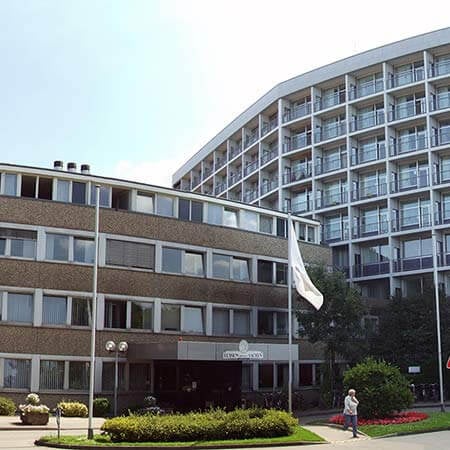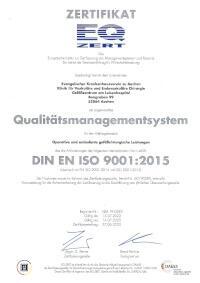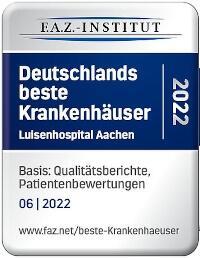Lower Extremity Arterial Disease (atherosclerosis): Diagnostic in Aachen - Germany
Treatment prices are regulated by national law of the corresponding countries, but can also include additional hospital coefficients. In order to receive the individual cost calculation, please send us the request and medical records.

Department of Vascular Surgery
The Department of Vascular Surgery offers all progressive surgical interventions for the treatment of vascular pathologies of varying severity. In addition to classic surgical techniques, sparing minimally invasive procedures are increasingly being used in clinical practice. In addition, specialization covers venous surgery with a particular focus on the treatment of varicose veins. The close cooperation of vascular surgeons with interventional radiologists and angiologists allows to provide each patient with comprehensive treatment of the highest quality.


Department of Vascular Surgery
The Department of Vascular Surgery offers the full range of medical services in the field of its competence. The department's team of doctors specializes in the surgical treatment of diseases of the arteries, veins, and lymphatic vessels. Since 2003, the department has been the Center for Vascular Diseases, certified by the German Society of Vascular Surgery (DGG). The department's specialists excel in the surgical treatment of carotid artery stenosis, peripheral arterial occlusive disease, abdominal aortic aneurysms, thoracic aortic aneurysms, deep vein thrombosis, varicose veins, and other pathologies. Eight specialized surgeons and highly qualified nursing staff members take care of the patients' health. The work of the specialists is based on an individual approach to each patient. The department's diagnostic rooms are equipped with state-of-the-art devices for computed tomography, magnetic resonance imaging, digital subtraction angiography, etc. Minor vascular surgical procedures are performed on an outpatient basis, while in complex clinical cases, patients require a hospital stay. The department's surgeons widely practice minimally traumatic endovascular and hybrid techniques, so the risks of complications during surgery or in the postoperative period are practically equal to zero, while the effectiveness of treatment is at a high level.




